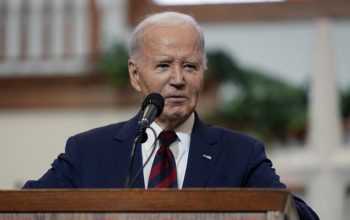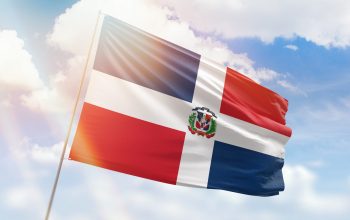news
“Rice: The Forgotten Issue on Marco Rubio’s agenda”, an article by Dr. Leonel Fernández
February 10, 2025
They discussed the rare earth issue. They touched upon the issue of narcotrafficking and corruption. They referred to the industry of semi-conductors and the Summit of the Americas. Overall, in a positive manner, they discussed our national interests relative to Haiti.
Although it is possible that it was served at the lunch held at the Dominican National Palace with the American Secretary of State, Marco Rubio, the truth is that among the issues addressed by the Dominican government there was a vital ingredient that was conspicuous by its absence: rice.
Loved by the majority of Dominicans, it is a key product in what is known as the “Dominican Flag”, a main ingredient of the country’s national diet and an item of great economic importance for strategic sectors of the Dominican Republic.
As is known, the Dominican Republic joined the free-trade agreement between the United States and Central America in 2004. The agreement was renamed DR-CAFTA.
According to the terms of the agreement, there would be a gradual elimination of tariffs from 2016 to 2025, after which the United States and the other countries in the agreement would be exempt from paying taxes on rice imports to the Dominican Republic.
It was from 2006, during our Administration, that our country became self-sufficient in the production of the cereal and the generation of export surpluses.
This was due to the application of the National Pledging Program, a measure that allowed rice producers to establish a fair market price for their product, thus guaranteeing them benefits for their operations and an affordable price for the consumer.
Currently, rice represents the crop of greatest economic and social importance in the country. Nearly three million acres are harvested and around 14 million quintals are produced annually.
Its production, processing and marketing constitute an important economic activity for 21 provinces and 35 municipalities in the country. The sector has some 30 thousand producers, generates some 200 thousand direct jobs and 300 thousand indirect jobs. The sector contributes RD$42 billion, or US$700 million, to the national economy.
Concern Over Imports
The import of rice is the main concern for domestic producers. And they have very good reasons to be concerned. Since the production and export of American-grown rice is considerably subsidized by the U.S. government, there is no way to compete on equal terms with countries like ours that do not enjoy these advantages.
There was a time when the import of rice to the domestic market was based on one of our main weaknesses: the lack of productivity and competitiveness.
However, over the last two decades, national rice production has made significant progress. New and better varieties are now being harvested. Larger grain sizes have been achieved, as well as better performance in the mills and in the cooking process.
The evolution has been so remarkable that at present, in order to sell imported rice, it would have to be mixed with Creole rice in a proportion of no more than 10 to 15% in order to preserve the quality of national commercial brands.
However, there has been little progress in production costs, due to the low scale economies, which in turn are derived from the size of the farms of most of the country’s producers.
All of this prevents the application of appropriate technologies, since practically all production inputs, such as machinery and equipment, fuels, lubricants, fertilizers, herbicides, insecticides and fungicides, are imported.
But the current concern comes from the tax relief on imports derived from the DR-CAFTA treaty which, as we have said, in the case of the rice sector, as of this year, 2025, would drop to zero rate.
In Search of a Solution
The consequences of such a situation would be catastrophic for our country. In terms of the economy, job creation and social peace, the national outlook would turn bleak.
For this reason, it is understandable that over the years different governments have tried to establish negotiation mechanisms with United States officials, with the aim of extending or eliminating the zero rate for the import of this important national agricultural product.
Taking into account the concern and fear of rice producers, the Dominican Embassy in Washington, in August 2022, requested a modification to the gradual elimination of tariffs.
The response, however, from the US government was negative. The argument was that “any modification to the gradual elimination of tariff quotas would imply a change in the agreement and would require the approval of all DR-CAFTA members.”
An additional statement argued: “As noted on previous occasions, the United States does not support the reopening or renegotiation of market access commitments under the DR-CAFTA.”
Urged, therefore, by the need to find a solution to the problem that so burdens the national rice industry, the President of the Republic created, in February 2023, an inter-Ministerial commission consisting of members of the Industry, Foreign Relations and Agriculture in order to implement “the necessary measures to safeguard and protect rice producers.”
The work of this commission resulted in Decree 693-24, dated December of last year. It refers to the tariff treatment of the Dominican Republic before the World Trade Organization (WTO); the establishment of a preferential quota of 23,300 metric tons; and outside of that quota, the application of the Most Favored Nation (MFN) tariff of 99%.
All of this has created joy and optimism among producers, millers and rice traders. But it is only one measure of the Dominican government with respect to an international treaty that involves several parties, especially the United States.
For that reason, it would have been important for this issue to be part of not only the luncheon, but also of the Dominican agenda and the new Administration of President Donald Trump.
But unfortunately, rice was not an issue on the negotiating table with Secretary of State Marco Rubio. It was the great absentee.





